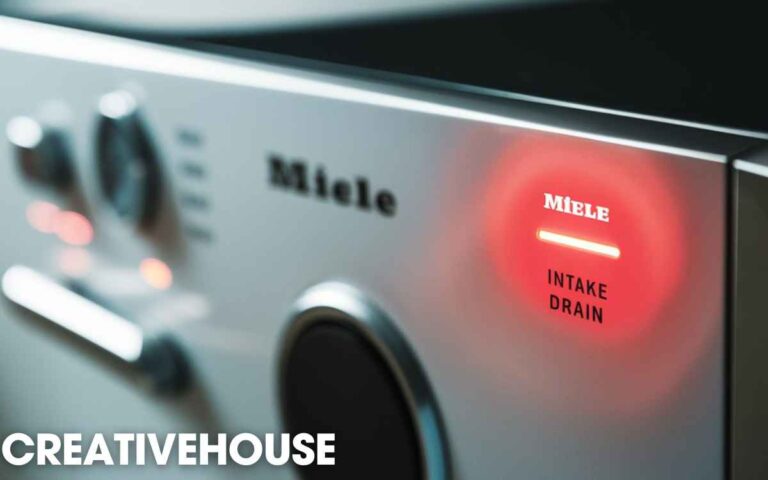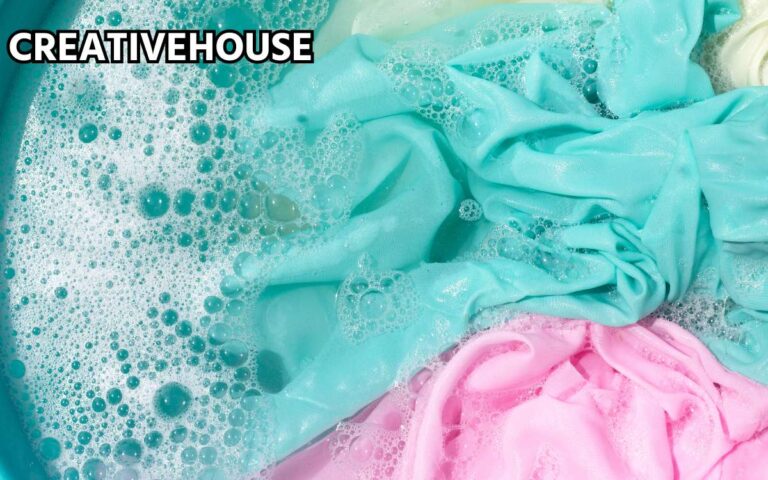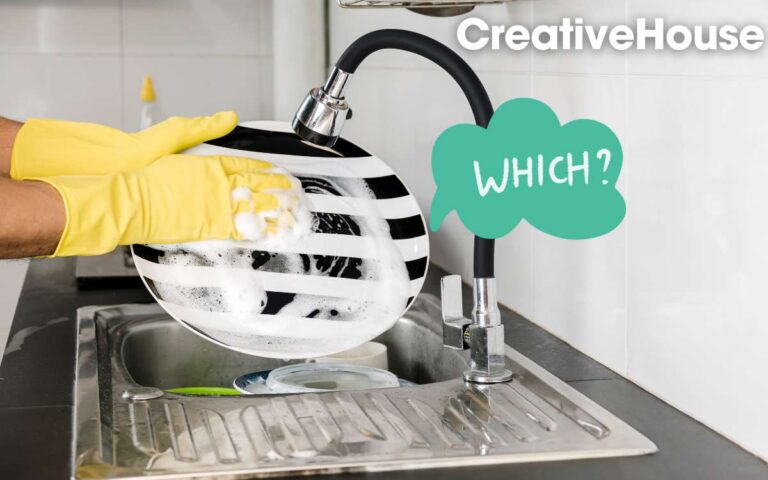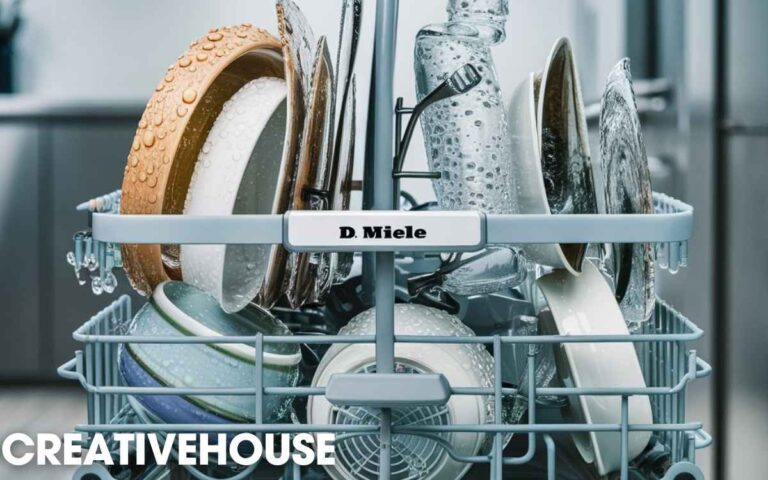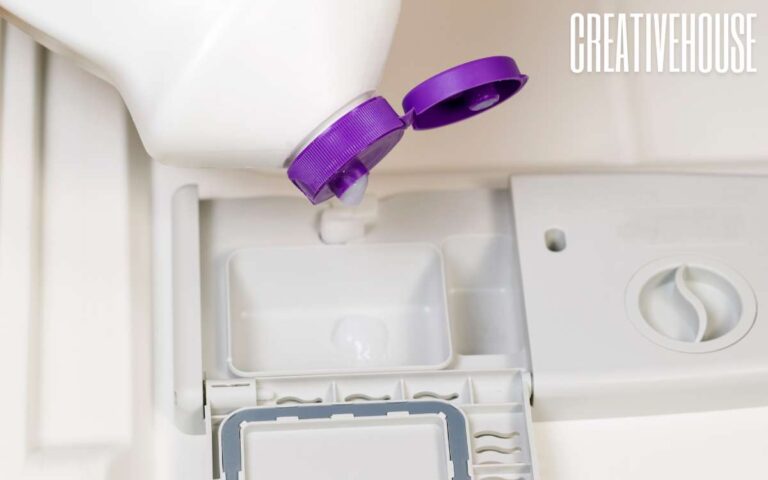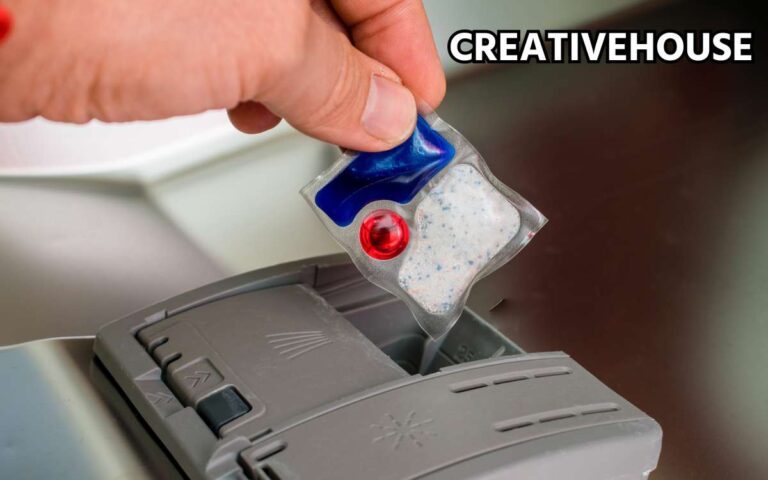Dishwasher filters are essential components of your Miele dishwasher. They remove food particles and debris from the wash water. They also prevent clogs and damage to the drain pump and the spray arms.
But did you know that you need to check and clean its filters regularly to keep it in optimal condition? Navigating the world of dishwasher maintenance can feel like decoding a complex puzzle.
But fear not! When it comes to Miele Dishwasher Check Filters, you’re about to become an expert. Let’s dive into it.
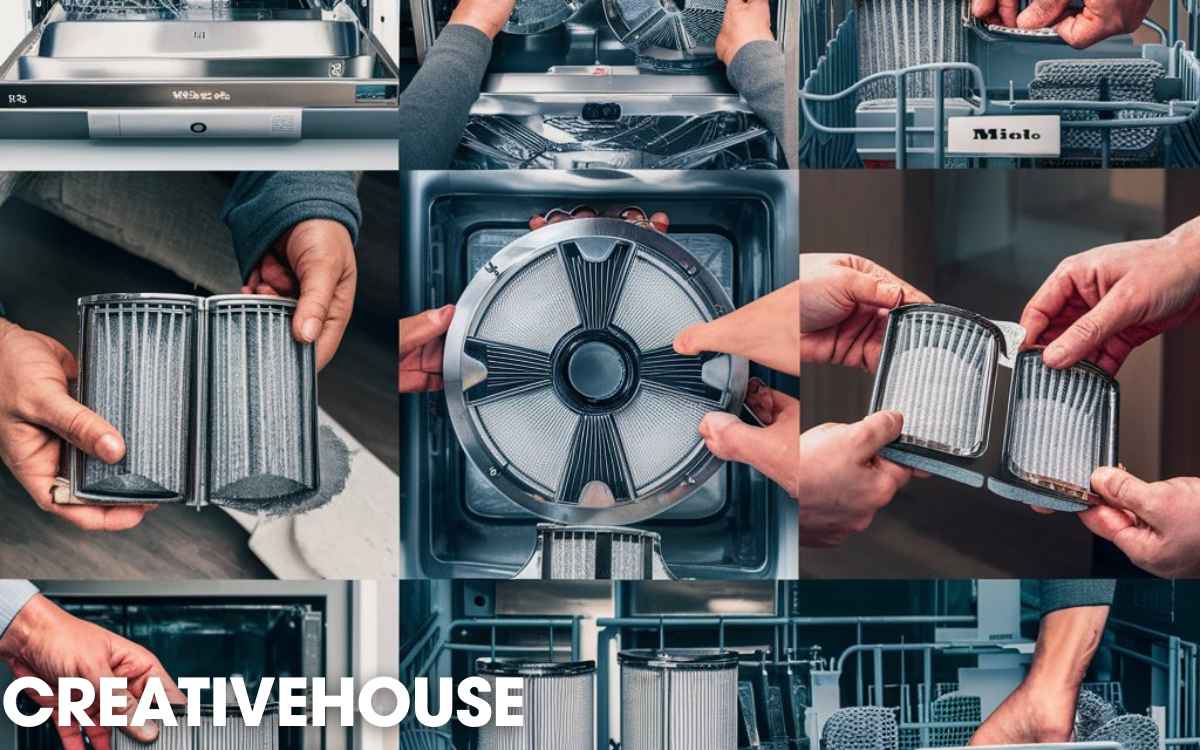
What are the Filters in a Miele Dishwasher?
A Miele dishwasher has three types of filters: a coarse filter, a fine filter, and a micro-fine filter. They are located at the bottom of the dishwasher, under the lower spray arm.
The coarse filter is the first line of defense against larger debris that might clog the system. It has a mesh-like structure that catches big pieces of food and other objects.
The fine filter is the second line of defense against smaller debris that might pass through the coarse filter. It has a finer mesh that catches smaller particles and prevents them from entering the circulation pump.
The micro-fine filter is the third line of defense against the finest debris that might pass through the fine filter. It has a very fine mesh that catches the tiniest particles and prevents them from contaminating the water.
The filters work together to ensure that your dishes are cleaned properly and that your dishwasher operates efficiently. They also protect your dishwasher from damage and reduce the risk of malfunctions.
Miele Dishwasher Check Filters: Why?
You need to check and clean Miele dishwasher filters regularly for several reasons.
First, it helps to improve the cleaning performance of your dishwasher. If the filters are dirty or clogged, they will reduce the water pressure and the spray intensity, causing poor washing results. You may notice that your dishes are not as clean as they used to be, or that they have spots, stains, or residues on them.
Second, it helps to prevent odors and bacteria growth in your dishwasher. A clogged filter will trap food particles and grease, creating a breeding ground for bacteria and mold. This can cause unpleasant smells and health hazards in your dishwasher.
Third, it helps to extend the lifespan of your dishwasher and avoid costly repairs. A dirty filter will put more strain on the drain pump and the motor, causing them to wear out faster or break down. This can lead to leaks, floods, or other serious problems that require professional intervention.
What are the Signs That Indicate Your Dishwasher Filters Need Cleaning?
The filters of your Miele dishwasher are designed to trap food particles, grease, and other debris that may clog the system. By doing so, they prevent damage to your appliance and ensure that your dishes come out clean and sparkling.
However, over time, the filters may become dirty or clogged themselves, which can affect the performance and efficiency of your dishwasher. If you don’t check and clean the filters regularly, you may notice some of the following issues:
- Your dishes are not cleaned properly or have spots or stains on them.
- Your dishwasher makes loud or unusual noises during operation.
- Your dishwasher takes longer to complete a cycle or does not drain completely.
- Your dishwasher smells bad or has mold or mildew inside.
- Your dishwasher displays an error code or a warning message on the control panel.
If you notice any of these signs, your Miele dishwasher check filters should be done as soon as possible. You may also contact a service technician if the problem persists.
How Often Do You Need to Check the Miele Dishwasher Filters?
The frequency of checking and cleaning your Miele dishwasher filter depends on how often you use your dishwasher and how dirty your dishes are. As a general rule, you should check your filters at least once a month and clean them if necessary.
However, if you use your dishwasher daily or if you wash heavily soiled dishes, you may need to check and clean your filters more often. You can also refer to your Miele dishwasher manual for specific recommendations.
How to Check and Clean Miele Dishwasher Filters
So, how to clean Miele dishwasher filters? Well, checking and cleaning Miele dishwasher filters is not a difficult task. You can do it yourself in a few minutes, without any special tools or skills.
Here are the steps to follow:
- Turn off the dishwasher and wait for it to cool down completely.
- Open the dishwasher door and remove the lower basket.
- Locate the filter system at the bottom of the dishwasher. It consists of three parts: a coarse filter, a fine filter, and a micro-fine filter.
- Check the coarse filter for any large or hard objects, such as bones, glass, or metal. Remove them carefully and dispose of them.
- Rinse the coarse filter under running water and use a soft brush to remove any stuck-on food particles or grease.
- Check the fine filter and the micro-fine filter for any dirt or clogs. They are usually attached together, but you can separate them by twisting them counterclockwise.
- Rinse the fine filter and the micro-fine filter under running water and use a soft brush to clean them.
- Reassemble the filter combination and twist the handle clockwise until it clicks into place.
We hope this guide has helped you learn about Miele dishwasher check filters and why it is necessary.
By following these steps, you can keep your Miele dishwasher in good condition and enjoy its performance for years to come.
If you encounter any problems with your dishwasher, you should always refer to the user manual or contact a Miele service technician for help.
Miele Dishwasher Check Filters – FAQs
How often should I check my Miele dishwasher filters?
While Miele recommends checking filters after every wash, this should be done at least once in a month.
What if my filter seems damaged or cracked?
Replace the filter immediately! Damaged filters compromise performance and could even leak, causing further problems.
What happens if I neglect to clean my Miele dishwasher filters?
Clogged filters can lead to reduced cleaning performance, unpleasant odours, and even potential damage to the pump and motor.
Are there any special tools needed for cleaning Miele dishwasher filters?
Most of the time, you’ll only need a soft brush and warm soapy water.
Can I use aftermarket filters in my Miele dishwasher?
While technically possible, Miele recommends using genuine Miele filters for optimal performance and compatibility. They are designed specifically for your dishwasher’s model and ensure the best possible filtration and protection.

